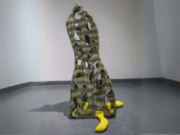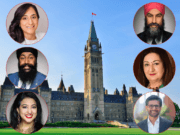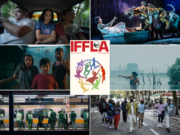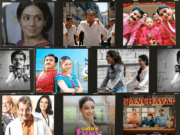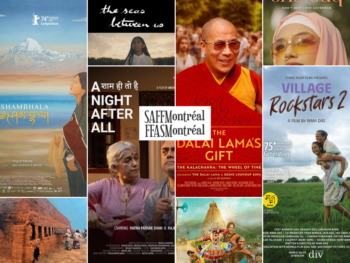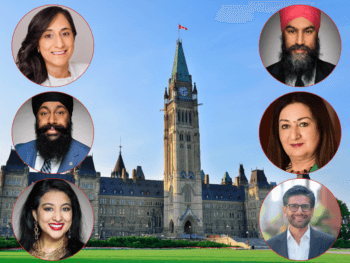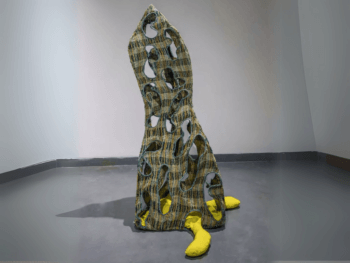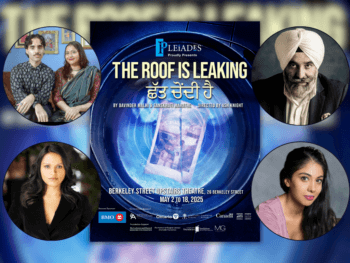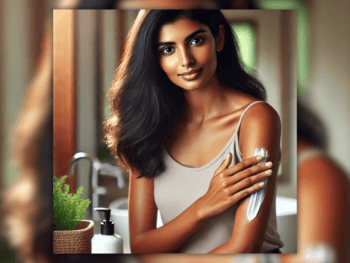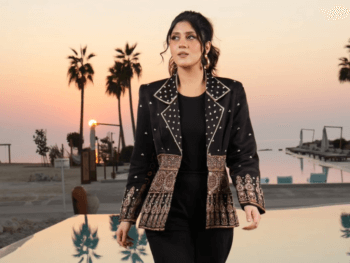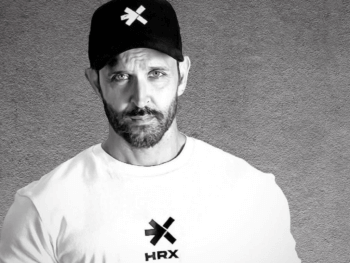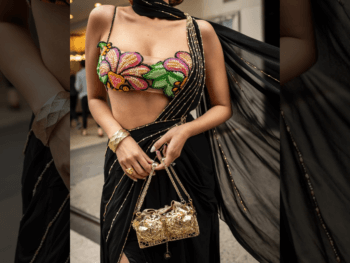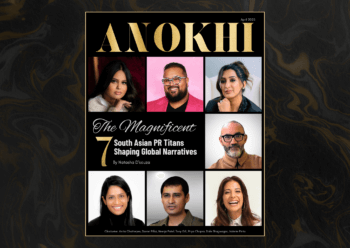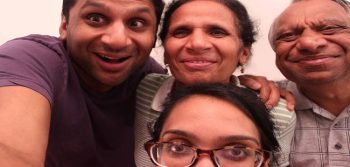
Sibling documentarians Ravi and Geeta Patel (and their parents) take audiences along on a funny, engaging quest to find Ravi a bride.
When Ravi and Geeta Patel first set out to shoot a documentary on dating and arranged marriage, they didn’t think, six-and-a-half years later, Meet the Patels would turn out to be the story of their own family. Ravi, an actor, imagined himself in a Michael Moore-like role, delving into the trials and tribulations of fellow Indian-Americans struggling to reconcile the expectations of their parents — specifically the expectation of many a Patel family that their kids marry a fellow Patel — with their Western upbringing, while sister/co-director Geeta worked the camera. But sure enough, as the months turned into years, Ravi, Geeta and their parents emerged as the hilarious, relatable heart of the film. ANOKHI got the chance to talk with Ravi and Geeta ahead of their film’s release this week.
Matt Currie: When did you decide to chronicle this experience you were both going through?
Ravi: About a year before we started, I was doing [standup comedy] at this Indian lawyer event, and I just started riffing on how my mom was setting me up with these girls with the last name Patel . . . And I’m expected to cold-call them on the premise of “Hey, I just thought I’d give you a call; I heard we might be good together as man and wife.” [Laughs] And it was killing in a way that I’d never killed before, because underneath the laughter there was some sort of a pain, there was emotion. Everyone came up to me afterwards and was like, “I’m so glad you talked about that. You should do a comedy tour. You should write a book.”
MC: What would you peg as the core of this film’s appeal?
Ravi: I think it’s hilarious to be going into this Eat, Pray, Love stage of your life with your parents by your side and your sister holding a camera on you. One of the things [that’s] interesting is that [Geeta and I] are having this very intimate conversation, and over time, you find out that the person behind the camera [Geeta] is going through things even worse.

MC: How did making this affect your family dynamic?
Geeta: Ravi and I became so much closer . . . we also learned the lesson of how to be a family as we made a film about family. The film took six-and-a-half years to make and halfway through, we just wanted to kill each other. We didn’t want to work together anymore. And Ravi always puts this very well when he says, we basically couldn’t fire each other, because we were siblings, so we realized we had to love each other more to get through it.
MC: Did you have any idea your parents would wind up stealing the show?
Geeta: I was really surprised. At first [their comfort level] made sense, because it was a family video and they really didn’t think much of it. And then as we went deeper, we told them that we were making a documentary and they kept opening up more and more. I think part of it is that they just didn’t have faith in our abilities as filmmakers [laughs]. I don’t think it really registered that this is a real thing.

Ravi: I didn’t really come to appreciate how funny, how loving, how adorable they are until we made this movie and suddenly everyone is like, “Look, love your movie; obsessed with your parents!” I feel like they are cinema gold, completely evidenced by the fact that we are in a place where mom and dad are threatening to become bigger successes in entertainment than we are [laughs]. Like, our agents have been calling them.
MC: There are several cartoon segments where an animated Ravi is recounting a story to the camera. Where did that come from?
Geeta: This sounds hilarious, like we’re really bad filmmakers . . . but we knew from the beginning that if mom or dad were going through a hard time, we were not going to put a camera in their face. It doesn’t make for the best filmmaking, because you’re missing those moments. So we’re like, “Oh, should we just not make the documentary?” Then we thought, “What if we can tell the story of this moment without seeing them, somehow?” So we decided to find some creative way to address those moments.

MC: What did you learn about yourself during this process?
Ravi: I learned that I have a very bow-legged walk. Posture has been a very big improvement as a result of this thing. But yeah . . . I really looked inside, I learned a lot more about relationships. One of the best things I learned was there are three major pillars to successful relationships: love, commitment and compatibility. Here in America, we put too much emphasis on the first pillar; and in India, they tend to put too much emphasis on the second two. When you look at all three together, that for me, makes sense.

For information on screenings in your area, visit meetthepatelsfilm.com.
Matthew Currie
Author
A long-standing entertainment journalist, Currie is a graduate of the Professional Writing program at Toronto’s York University. He has spent the past number of years working as a freelancer for ANOKHI and for diverse publications such as Sharp, TV Week, CAA’s Westworld and BC Business. Currie ...


















